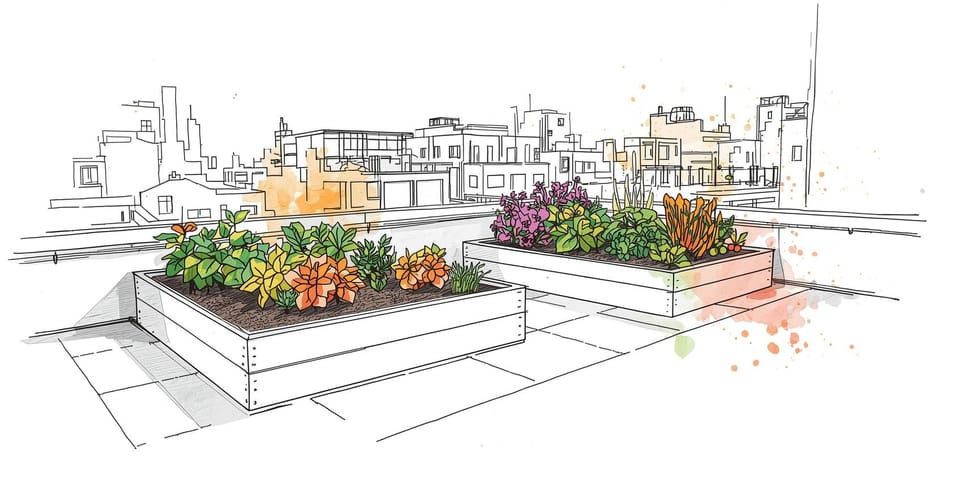Regenerative Productivity

I'm inviting a small group of explorers to join me in a 6-week experimental program to design and refine your own regenerative productivity system.
Whether you’ve spent years intentionally evolving productivity systems (like I have), or you feel like you’ve never been able to figure out a system that works for you, the program will support you in delivering great work while tending to your physical, mental, social, and spiritual wellbeing.
We'll have shared structures & individualized practices.
By working in a 6-week cycle, we create a container that's big enough to tackle meaningful goals but small enough that we can stay grounded in what's realistic.
- A 30-minute on-boarding call lets us map your situation and challenges.
- Daily and weekly check-ins give you observability and reflection points.
- Optional practices give you a chance to play with approaches that might help you and learn more about your unique energy patterns.
- Videos and other resources give you practical help with topics like time blocking, ultradian rhythms, and managing multiple work streams.
- Meditations and movement practices help you tend to the physical, emotional, and spiritual aspects of work.
- Co-working and troubleshooting sessions help you find focus through community.
We’ll prioritize cycles, consistency, and connection.
- Cycles. We work best in cycles, not straight lines. We’ll pay attention to personal and natural cycles across different time scales: a 25-minute pomodoro, half-quarter goals, the waxing and waning of the moon.
- Consistency. Consistency beats intensity. We’ll trust that showing up consistently will give us compounding benefits over time: better outcomes with less striving. “Dailyish” will be our watchword — a gentle consistency that bends instead of breaks when we miss a day.
- Connection. Healthy ecosystems are profoundly interconnected. We’ll foster connection with ourselves, our communities, and our built and natural environments.
We’ll borrow 8 principles from permaculture.
There are 12 permaculture principles that guide designing healthy gardens. We’re going to adapt a subset of these principles in the pilot program:
- Observe and interact. Instead of prescribing a templated system, we start by noticing how you already work. We don’t want to throw out what’s already successful or try to implement something that fights your natural flow.
- Design from patterns to details. Once we have some understanding of your existing patterns, we’ll work with those patterns to design systems that give you the most benefit with the least effort.
- Obtain a yield. The systems should yield visible results over the course of the 6 weeks. If they don’t, that’s feedback that something’s not working.
- Apply self-regulation and accept feedback. We’ll treat feedback signals as information, not as failure. If you’re struggling to get work done, or you’re productive but exhausted, we’ll look deeply at what’s happening to understand what the system is telling us.
- Use small and slow solutions. Patience helps us design more intelligently. We’ll start small and take our time, waiting to automate, optimize, or scale until we’re confident that’s warranted.
- Use and value diversity. Our ideal won’t be to sit down with relentless focus for hours at a time. We’ll cultivate diverse activities that support cycles of work, play, and rest.
- Use edges and value the marginal. Just like an urban gardener might plant nettles and dandelions along the edge of a path, we’ll find creative ways to enrich margins and transitions, from doing micro-workouts on pomodoro breaks to doodling in the empty spaces of a planner.
- Creatively use and respond to change. Our environment changes constantly, as do we. We’ll treat that as a playful aspect of reality, working with change instead of fighting or ignoring it.
Who this is for: This version of the program is designed for solopreneurs, independent creators, freelancers, and remote workers who don't have structures around them to support their work. If you have a full-time job with structures like daily standups, frequent demos, and project managers who prioritize work, this iteration might not be a good fit.
Time commitment: You can scale your participation to what serves you. (Not sure you have bandwidth? Sign up below and we can discuss it.)
Cost: There's no money exchange for the pilot program. My ask is that you schedule an on-boarding and off-boarding call, and participate as much as possible. Your feedback will help me shape a program that has maximum impact and value.
What about time zones? For scheduled video calls like demos and co-working sessions, time zones matter. Most participants in the pilot program are in the Americas, with a few in the UK and EU. If you're on the fence, start the sign-up process and reach out to me to discuss it.
Registration is now closed. If this program sounds exciting, sign up below to get updates when I open the next cohort. I'd love to grow with you in a future program.